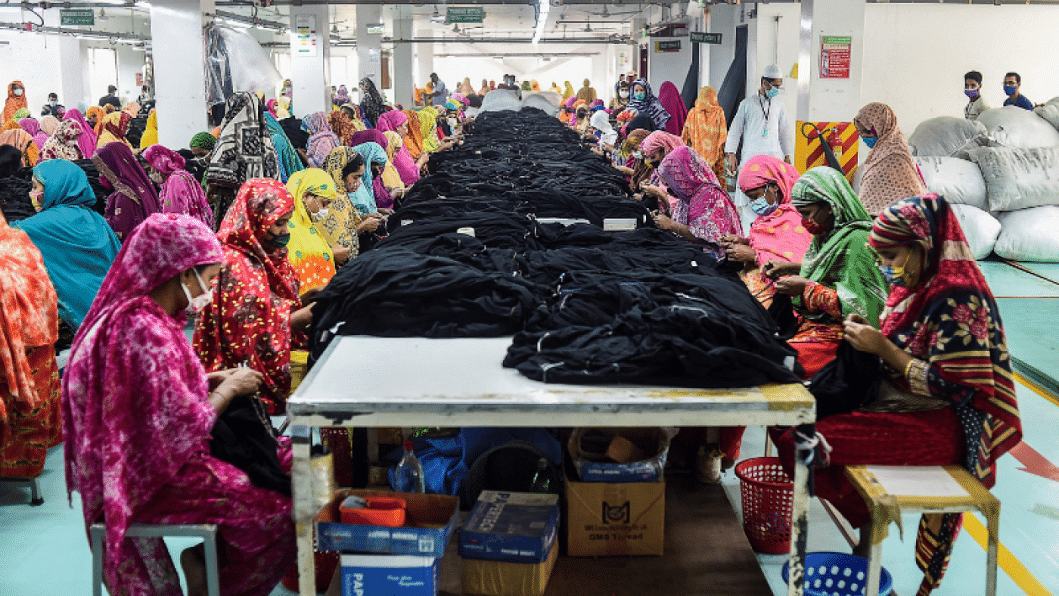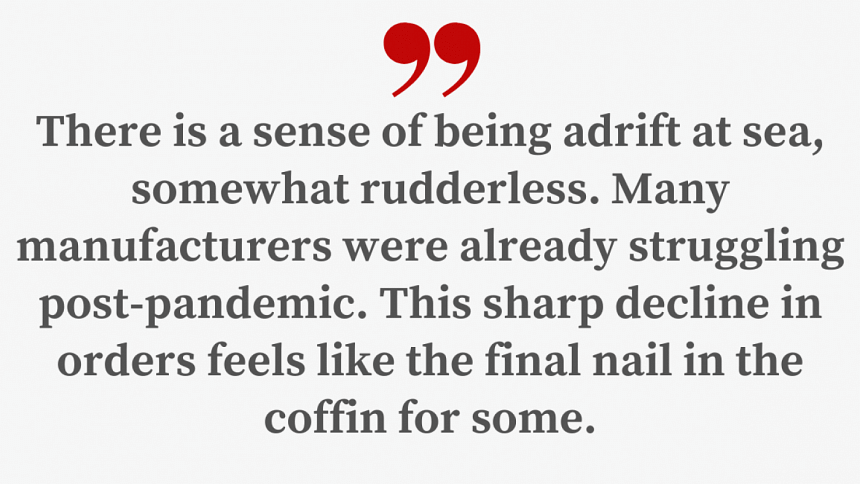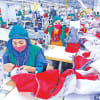Uncertain times ahead for RMG business

Recently, I have been asked these questions a lot: "How bad are things?" "How serious is the downturn in RMG orders in Bangladesh?" "Are things as bad as they were at the beginning of the pandemic?" "Are fashion brands refusing to pay for cancelled orders again?"
I keep my ear close to the ground on these issues and, obviously, ready-made garment (RMG) makers talk. This is a close-knit industry where all of us look out for each other. So I have a reasonable idea about what is going on at the moment.
Here, I will attempt to set out a few of the trends I am seeing as well as outlining three possible scenarios for the coming 12-18 months.
First things first: is the current turmoil worse than how things were during the pandemic – particularly the early 2020? In some ways, yes, things do seem worse. All of the RMG manufacturers in the country recognised that the pandemic was unprecedented. Also, from a relatively early stage, it became clear that a vaccine was on the horizon and most policymakers agreed that this would allow economies to reopen. With government support, most manufacturers were able to ride out the pandemic. They could see light at the end of the tunnel, as bad as things were.

The situation at present feels different. There is a sense of being adrift at sea, somewhat rudderless. Many manufacturers were already struggling post-pandemic. This sharp decline in orders feels like the final nail in the coffin for some. I would not be surprised to see many smaller operators fail completely.
In terms of trends, we are seeing several things. The first is the pushing back of orders, for weeks or even months at a time. It is obvious why this is happening. Reports in the Western media show that fashion retailers are sitting on huge stocks. They are still trying to shift the stock from last season and even the season before that. Sales are down and consumers are tightening their belts. This is having a knock-on effect on garment makers in Bangladesh, who are waiting to see when orders will be finalised.
Very few RMG makers I know of have orders beyond December. Moreover, the run-up to December is traditionally the busiest time of the year. Yet, apart from some specialist items – e.g. suits – orders are simply not coming in.
A related trend is that RMG manufacturers are being asked to hold onto goods – fashion retailers are delaying the delivery. Some manufacturers have become an extension of the warehouses of fashion brands – a trend we saw in the early months of the pandemic. This is creating pressure on the manufacturers, while the production lines sit idle.
Are the retailer brands demanding discounts? Unfortunately, yes. Some brands are complaining about exchange rate fluctuations as a justification for demanding discounts – of 25 percent or more, in some cases – on orders. What this fails to account for is that RMG manufacturers are also impacted by the fluctuation in exchange rates. They have also been hit by the rising costs for fuel as well as raw materials such as cotton (the price of which has fluctuated wildly these past two years). As garment makers, we cannot afford to absorb all cost increases along the supply chain. It is simply not financially feasible.
So how do all of the above play out? Here, I outline three potential scenarios.
First, the government, fashion retailers and garment makers can all work collaboratively to navigate our way through the current crisis. The last thing any of us want is a return to the early pandemic days when garment makers were left with stockpiles of cancelled orders that the retailers refused to pay for. Last time around, enlightened brands such as H&M led the way and ensured that the minimum standards were adhered to in terms of paying for placed orders and keeping manufacturers in the picture.
Obviously, this collaborative approach is the best way forward, but even here, we may have to accept that the next 12-18 months would be incredibly tough financially.
Second, the markets will dictate how events unfold. There is a theory that the global economy would begin to pick up on its own accord in mid-2023. If things do pick up, and the current economic turmoil proves to be a short-term blip, this is something I could see our industry riding out. We learnt hard lessons during the pandemic, and we are nothing if not resilient.
Third, and the worst, is that the world enters a long and protracted recession akin to the financial crisis of 2008. This is one where buyers lack the will (or ability) to support their suppliers and instead play hardball. We see a return to the cancelled order crisis of early 2020 as fashion retailers shore up their balance sheets. If such a scenario were to play out for two or more years, I would fear greatly for the future of our industry. The big boys would probably survive, but for the rest, we would be entering the realms of the unknown.
For all our sakes, then, let's hope that the third one never comes to pass.
Mostafiz Uddin is managing director of Denim Expert Limited. He is also the founder and CEO of Bangladesh Denim Expo and Bangladesh Apparel Exchange (BAE).

 For all latest news, follow The Daily Star's Google News channel.
For all latest news, follow The Daily Star's Google News channel. 









Comments